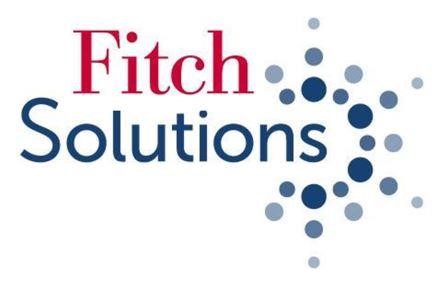Fitch Solutions has revised Ghana’s Gross Domestic Product (GDP) growth rate in 2024 to 3.5%, from the earlier forecast of 3.7%.
This is however higher than the expected 2.7% growth rate in 2023, but lower than the pre-Covid-19 pandemic average of 5.0%.
According to the UK-based firm, it expects that the Ghanaian economy will enter a recovery phase in 2024, driven by stronger private consumption.
“We expect that the Ghanaian economy will enter a recovery phase in 2024, driven by stronger private consumption”.
“Soaring consumer price inflation over 2022-23 – due to the sharp sell-off of the Ghanaian cedi – weakened purchasing power of households and weighed on domestic consumption. However, we expect that price growth will moderate from an average of 40.3% in 2023 to 17.8% in 2024, driven by statistical base effects and more favourable exchange rate dynamics, it pointed out.

Indeed, it said the government will make progress regarding the restructuring of Ghana’s external debt under the G20 Common Framework in the coming quarters.
It added that a more expansionary fiscal stance will inject additional demand into the economy.
Growth in final quarter of 2023 to remain subdued
It further stated that growth in the final quarter of 2023 will remain subdued.
This is because Ghana’s purchasing managers’ index (PMI) for October and November remained broadly in line with quarter 3, 2023 – averaging 51.1 – pointing to only a slight expansion in the manufacturing sector (PMI values above 50 represent an expansion).
Meanwhile, both consumer and business confidence remained subdued going into quarter 4, 2023, suggesting that a notable recovery in domestic demand is unlikely at the end of 2023.
National accounts data published by Ghana Statistical Service shows that economic growth decelerated sharply to just 2.0% year-on-year in quarter 3, 2023 – from 3.2% in the preceding quarter – marking the weakest outturn since quarter 3, 2020 when the economy contracted by 3.5% due to the Covid-19 pandemic.
The slowdown in growth was primarily caused by a deeper contraction in the secondary sector – as a result of a downturn in the oil and gas industry – and weaker conditions in the services industry.
Latest Stories
-
Joy FM Prayer Summit for Peace ends in electrifying worship and prayer
1 hour -
The Conscience of Leadership: A call to President Akufo-Addo on Ghana’s environmental devastation
2 hours -
Ghanaian youth unaware of their right to hold politicians accountable – Youth Bridge Foundation
3 hours -
Judge delays Trump sentencing for a third time
3 hours -
2024 WAFCON: Ghana drawn against defending champions South Africa in Group C
4 hours -
Photos from DW-JoyNews street debate on ‘galamsey’
4 hours -
Mimmy Yeboah: Blending heritage with global sophistication, confidence redefined through couture
5 hours -
100 Most Influential People Awards 2024: Brain Hill International School’s Director Mary Anane Awuku honoured
5 hours -
Akufo-Addo commissions 97-km Tema-Mpakadan railway line
5 hours -
Majority requests recall of Parliament
5 hours -
Kanzlsperger and Professor Quartey support WAFA with medical Donation
5 hours -
Gideon Boako donates 10 industrial sewing machines to Yamfo Technical Institute
6 hours -
‘Golden Boy’ Abdul Karim Razak honored at WAFU-B general assembly
6 hours -
Buipewura Jinapor secures Vice Presidential position in National House of Chiefs with record votes
6 hours -
2024 election: I want results to come out like ‘milk and honey’ – Toobu
6 hours

